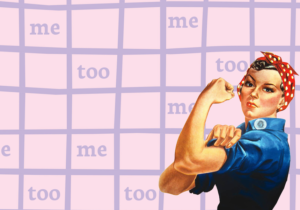A full page picture of Christy Clark with the catchy title “The Comeback Kid” was Vancouver’s edition of 24 Hours controversial front page on Wednesday May 1. The controversy? It wasn’t an article, it was a bought and paid for campaign ad created by the Liberal Party.
The ad surfaced in the morning following a close Political debate, which, coupled with Adrian Dix’s stinging response, sparked the idea that Christy Clark was trying to “buy a win”. Dix reportedly stated upon seeing the ad, that he believed: “political parties should not be spending money on “creating illusions” around a story.”
The ad features Ipsos Reid poll results taken after the debate which depicts Clark as the leader of the debate. It does not however feature the full results of the poll which in-fact place Clark in a far less flattering light.The online results showing “of the 677 British Columbians surveyed, more people thought Dix had won the debate than Clark and a wide majority thought Dix had better ideas than Clark”.
Besides the feelings of “mistrust” and “deception” for Clark’s tactics of those interviewed by Maclean’s Magazine about the ad, it’s emergence has led to an even greater problem; the questioning of media’s role in the democratic process.
Robert Hackett, a professor in the Communications faculty of Simon Fraser University, believes that: “The front-page publication of a political ad that looks like a news story takes the long-standing tension between commercial pressures and journalistic integrity one step further”.
So how does this paid advertisement relate to Robert Hackett’s questions of Media and Democracy?
Hackett explains his rejections in two points: “The commodified commercialized media system has a class bias in favor of affluent audiences because as Dallas Smythe explained decades ago the main commodity in the commercial media system is the audience itself or at least the capacity of the audience to pay attention. Therefore, some audiences are much more valuable to advertisers than others, so the sensitivities of affluent consumers are served better than other parts of the population.”
The second point: “Elections themselves have become exercises in political marketing. In a sense what is being commodified is the image of the candidates, the parties and especially the leaders. With all the well known remarked consequences for democratic deliberation, such as: emphasis on style over substance and the turn away from substance of issues. A certain degree of cynicism is then cultivated on the part of the population as well as a kind of political ignorance if the issues are not discussed in substantive terms.”
The question of commodification of media is nothing new to the communications world, it has been a growing trend for the past few years bringing into question long-standing ideas of democracy, and journalistic integrity, and freedom of the press.
Only a month ago, SFU held a debate at their Harbor Centre location between Jodi Dean and Andrew Feenberg, two notable names in the field. They called it Revolutionary Horizons, and discussed in depth the problems facing today’s communication mediums, and their effects on democracy in Canada and around the world. A sign that the public is truly interested? The event sold out, packed to the point where people were sitting on the steps of the auditorium in order to listen.









